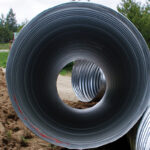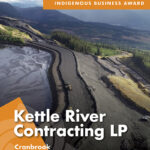Home »

Permanent stations for Cranbrook, Invermere
Lakes and rivers in the East Kootenay will benefit from a $2-million boost to the province’s invasive mussel defence program that will see eight permanent mussel inspection stations installed at major entry points along B.C.’s borders, including one in Cranbrook and another in Invermere, Kootenay East MLA Bill Bennett announced today.
Five permanent stations will be set up along the Alberta-B.C. border (Cranbrook, Invermere, Golden, Valemount and Dawson Creek), and three stations will be along the U.S.-B.C. border (Lower Mainland, Penticton and Nelson).

“These improvements to B.C.’s mussel defence program are a big step toward protecting our waterways from the threat of quagga and zebra mussels,” Bennett said. “Through ongoing efforts, our government is providing the necessary tools and border coverage to stop invasive mussels from entering B.C. and causing severe damage.”
In total, 32 conservation officers will work the stations, which will operate 10 hours a day, seven days a week from April through October. This is an increase of 20 crew members from last year’s pilot and an additional six mobile decontamination units are being added to the fleet of equipment. The eight inspection stations will have the capability to become mobile if the need arises, travelling to locations throughout B.C. where watercrafts are being detained, waiting for decontamination.
The Invasive Mussel Defence pilot program was launched in 2015. During May-October 2015, over 4,300 boats were inspected, of which 70 were identified as coming from an invasive mussel infested province or state. Out of these 70 watercraft, 34 required decontamination and 15 were confirmed to be transporting invasive mussels or their larvae. Six were issued a 30-day quarantine order due to risk of live mussels.
Quagga and zebra mussels pose a serious threat to B.C.’s aquatic ecosystems, salmon populations, hydro power stations and other infrastructure facilities. They can clog pipes, cause ecological and economic damage, displace native aquatic plants and wildlife, degrade the environment and affect drinking-water quality.
Find out more about quagga and zebra invasive mussel species and the environmental, economic and social impacts they pose to freshwater HERE.
Find out more about the Clean Drain Dry program, and the Invasive Species Council of BC HERE.
e-KNOW







